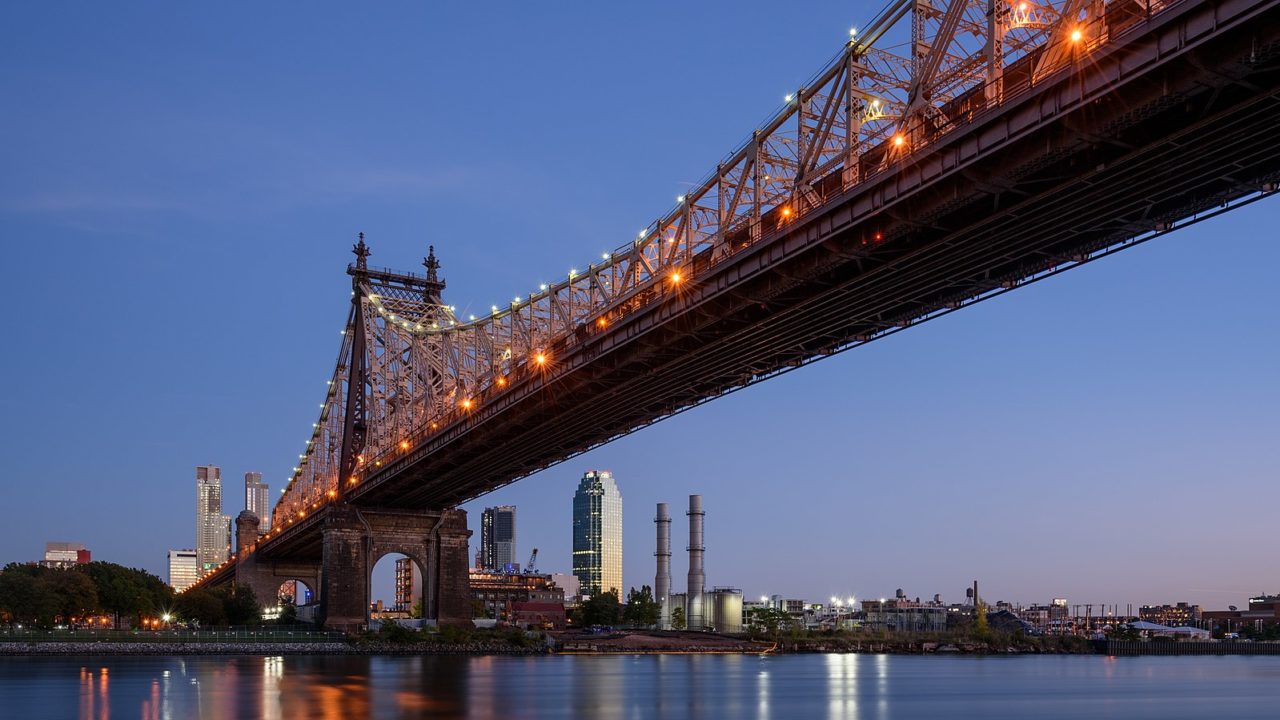 "Queensboro Bridge New York October 2016 003.jpg" by King of Hearts is licensed under CC BY-SA 4.0
https://commons.wikimedia.org/wiki/File:Queensboro_Bridge_New_York_October_2016_003.jpg
"Queensboro Bridge New York October 2016 003.jpg" by King of Hearts is licensed under CC BY-SA 4.0
https://commons.wikimedia.org/wiki/File:Queensboro_Bridge_New_York_October_2016_003.jpg
On Tuesday, New York Governor Kathy Hochul announced a proposal to increase the state excise tax on cigarettes by $1 and ban all flavored tobacco products. The state currently loses over $1 billion each year in tobacco tax revenue to illicit smugglers due to their current $4.35 per-pack tax on cigarettes, the highest in the nation. Gov. Hochul’s plan to hike the tax rate to $5.35 would drive more tax revenue out of the state with zero evidence indicating the hike would do anything to lower smoking rates. Further, the proposal comes with serious concerns regarding criminal justice and police brutality.
Thanks to New York’s highest-in-the-nation tobacco tax, 53.5% of cigarettes smoked in the Empire State in 2020 were purchased from illicit sources, another statistic in which New York leads the country. Since 2006, New York’s tobacco tax rate has risen 190% as illicit tobacco took control of the state. Yet another tax hike, as Gov. Hochul is championing, would turn even more control over to the bad actors who control the black market for tobacco products.
Tobacco smuggling in the United States is largely run by highly organized, and highly dangerous, international crime syndicates. Tobacco smuggling is recognized by the U.S. State Department as a “threat to national security” because the low-risk, high-reward activity provides criminal groups with immense profits that they use to carry out human trafficking, money laundering, and terrorist operations.
Not only would Gov. Hochul’s proposal come with serious national security risks, but it would also do nothing to drive down smoking. 72% of people who smoke are from low-income communities and data from the National Adult Tobacco Surveys has consistently found that tobacco tax increases have no statistically significant impact on smoking prevalence among people with annual household income less than $25,000. This misguided proposal would place an additional burden on low-income New Yorkers at a time of unprecedented inflation. With many families still dealing with the aftermath of the COVID-19 pandemic, increasing the financial burden on people who are addicted to nicotine is unbelievably cruel.
A peer-reviewed study from 2012 determined that high-income New Yorkers spend just 2% of their income on cigarettes while poor New Yorkers spend almost a quarter of their income, 23.6%, on cigarettes each year. Gov. Hochul and the New York legislature must not ignore the disproportionate impact that this tax hike would have on New York’s most vulnerable.
In addition to the tax hike, the proposal includes a ban on flavored tobacco. Removing flavored tobacco products from the shelves would further encourage illicit tobacco smuggling and many, including ATR, have warned that banning flavored tobacco will exacerbate inequality in Black communities by criminalizing products more popular by Black Americans. There’s reason to be concerned. Banning flavored tobacco would make all menthol cigarettes in the state untaxed, and therefore illegal to possess. Eric Garner, the New York man who was choked to death by NYPD in 2014, was approached by police under suspicion of selling untaxed cigarettes.
Flavored tobacco, which includes menthol cigarettes, flavored cigars, and cigarillos, does not expose users to more harm than unflavored tobacco and there is no evidence that flavored tobacco is harder to quit. Flavored tobacco products like menthol cigarettes, contrary to the claims of Gov. Hochul and those who support the ban, are not popular among youth. A mere 0.78% of high schoolers are menthol smokers. There is no public health justification for such a wide sweeping prohibition of popular, legal products.
If Governor Hochul and New York lawmakers want to actually decrease smoking, they should embrace policies that seek to reduce the harm nicotine users are subject to by allowing legal access to reduced-risk alternatives to cigarettes like vaping. New York undemocratically banned flavored vapes in 2020, so this path forward appears unlikely.
However, if the Governor is seeking to increase the presence of illicit cigarettes and criminal smugglers in her state, all while driving down tax revenue, then this is just the proposal the state needs.

